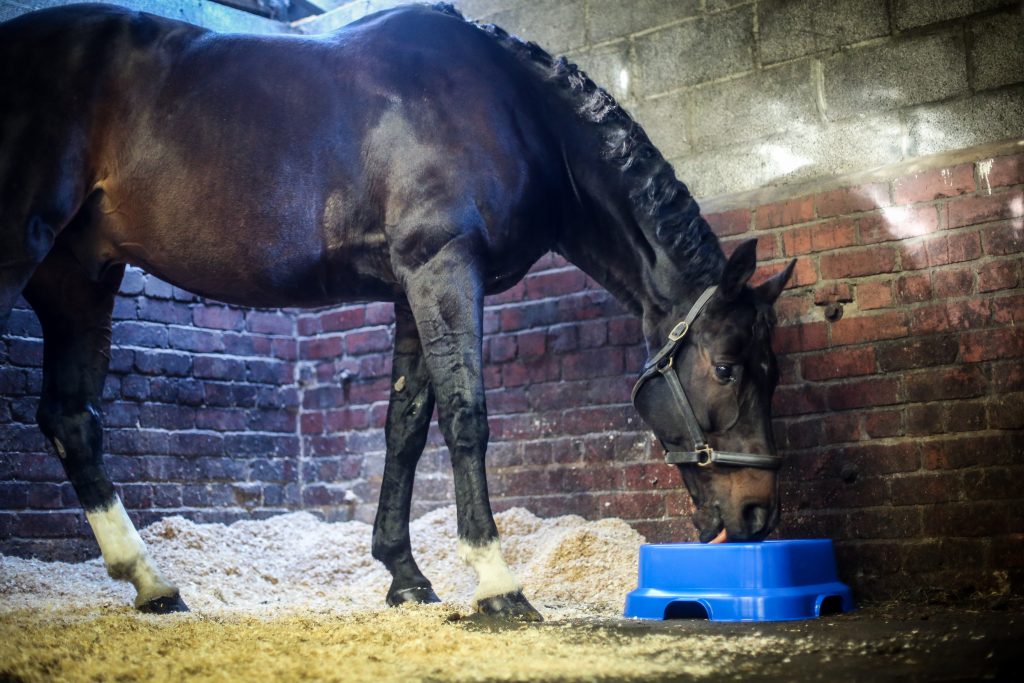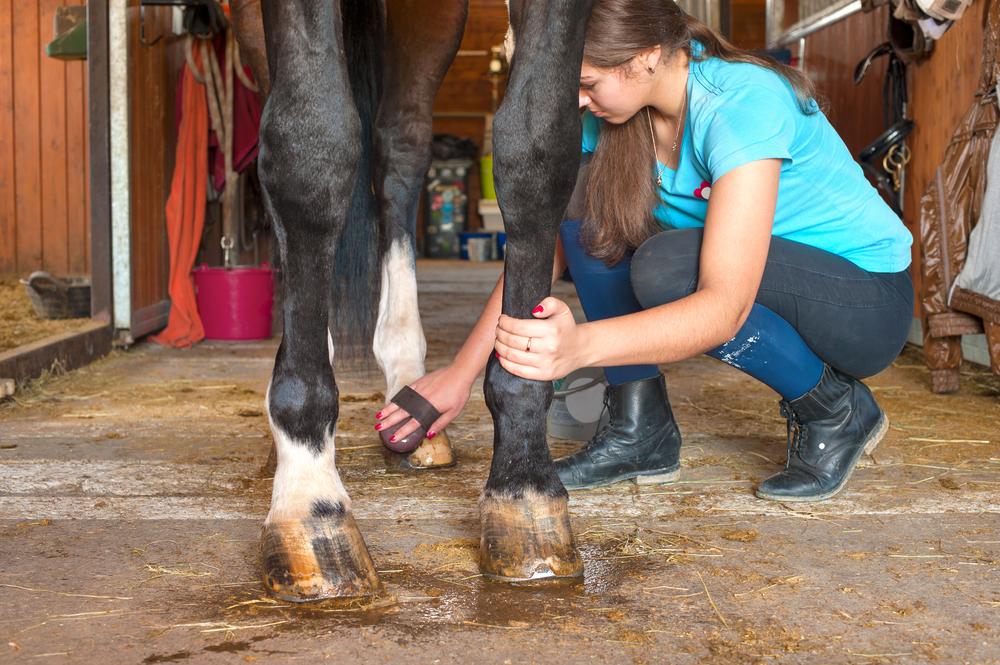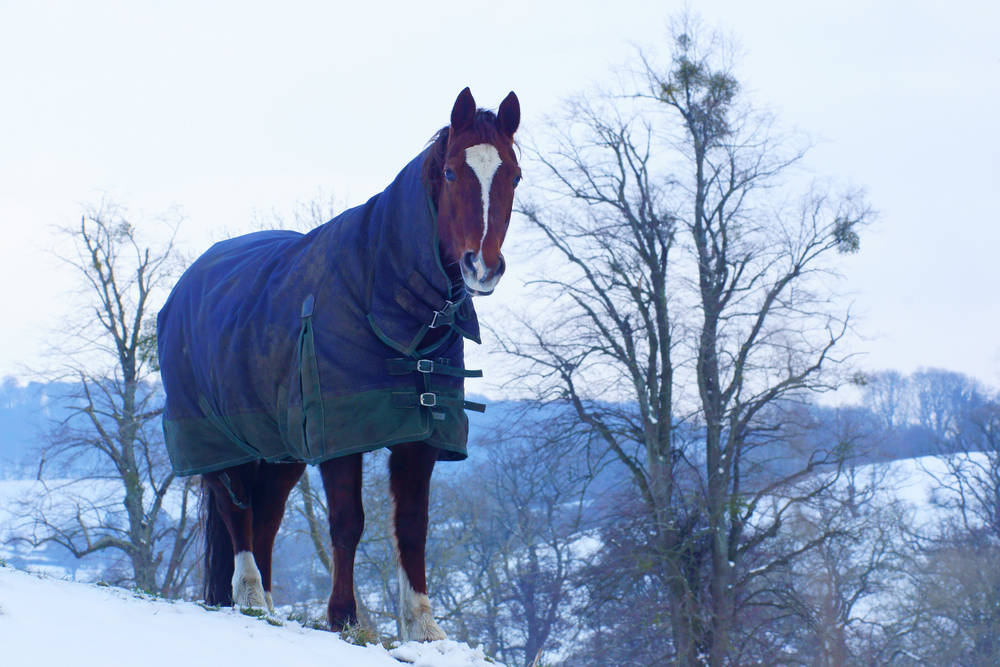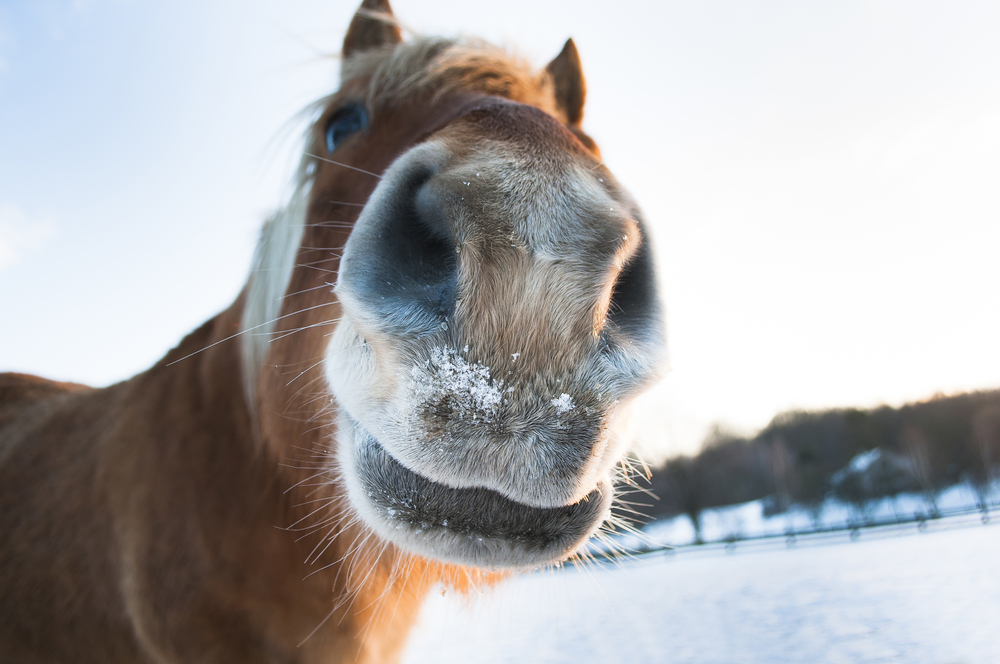It is the start of a new year and while we have tackled the shortest day there are still several months of cold, wet and miserable weather to get through! However, instead of feeling down about the colder months, make sure you are fully prepared to deal with seasonal issues this year with our helpful guide. Before you know it hopefully the winter months will have flown by without incident!

Issue no 1: Boredom
Unfortunately, during the winter months, when light is scarce, grazing is even scarcer and the weather is vile, it often leads to less time grazing and more time in the stable. For some horses this is not a problem but many, particularly those used to their free time in the field, can get stressed and bored which can bring on or exacerbate unwanted behavior such as box walking, weaving and crib biting. The simplest way to keep your horse entertained is by satisfying their innate need to graze in a trickle feeding pattern and an ideal way to do this is by supplying them with free access to a lick, such as Horslyx.
Alongside a palatable and nutrient dense lick it is also vital to maintain a steady supply of forage, either in the form of hay, haylage, good quality straw or forage replacers. This will not only keep their brain occupied for longer and help maintain condition, but it also supports a healthy digestive system.

Issue no. 2: Mud Fever
Whether you are sick of traipsing through fields of it, fed up of hosing it off your horse’s legs or if you are one of the many people that have to help your horse battle against mud fever – mud is the bane of horse owners’ lives! The cause of mud fever is bacteria, which under normal circumstances can be fought off by your horse’s skin. However when standing in wet and muddy conditions the integrity of the epidermis can become compromised, therefore allowing bacteria to penetrate and cause soreness, irritation and infection.
To prevent mud fever, start with good paddock management. If you can, avoid allowing your horse to stand for hours at a time in a wet and muddy gateway. Move hay piles around the field to encourage horses to stand on new, fresh ground and rotate fields when they become too poached. Keep legs clean and dry either by brushing mud off once the legs have dried off, or by washing and drying thoroughly. Barrier products, such as ‘Sudocrem’ can also help. If, and when, Mud Fever strikes you need to keep your horse away from wet and muddy conditions. Clean the affected area with an anti-bacterial lotion, maintain a dry environment and apply an anti-bacterial cream when necessary. If you are in any doubt always contact your veterinarian for advise.

Issue no.3: Lack of exercise
What is worse than a fresh and over exuberant equine? An equine that has been cooped up with limited exercise and has more energy than you know what to do with! A chilly day, a full clip, too much stable time and a reduction in turnout can turn the most placid of horses into an irrational coiled up spring! For some people it is simply not an option to turn horses out but with limited daylight hours it can be difficult to exercise and maintain fitness levels during the winter. When time is of the essence consider condensing your training sessions.
Lungeing a few times a week is a great alternative to riding and can be done in 15 – 20 minutes, try mixing things up by adding in polework and use a training aid such as the Equi–Ami to encourage correct engagement and suppleness. Loose-schooling, if you have an arena with a sturdy well built fence, you can also allow a horse to let off some steam without you having to get on board. Always ensure you are wearing a correctly fitted riding hat, even when doing groundwork. If you have time to ride but are not sure if you might experience explosive behaviour, pop your horse on the lunge for a few minutes before you mount to allow any freshness to get out of their system. It is better safe than sorry! Plan your sessions before hand so you don’t waste time when you get on and consider focusing on just one are you want to improve in each session rather than several. If all else fails and you are stuck on what to do, you can never do too many transitions so practice, practice, practice!
For more winter tips and feeding advice check out our Facebook page for daily inspiration and Horslyx news.

